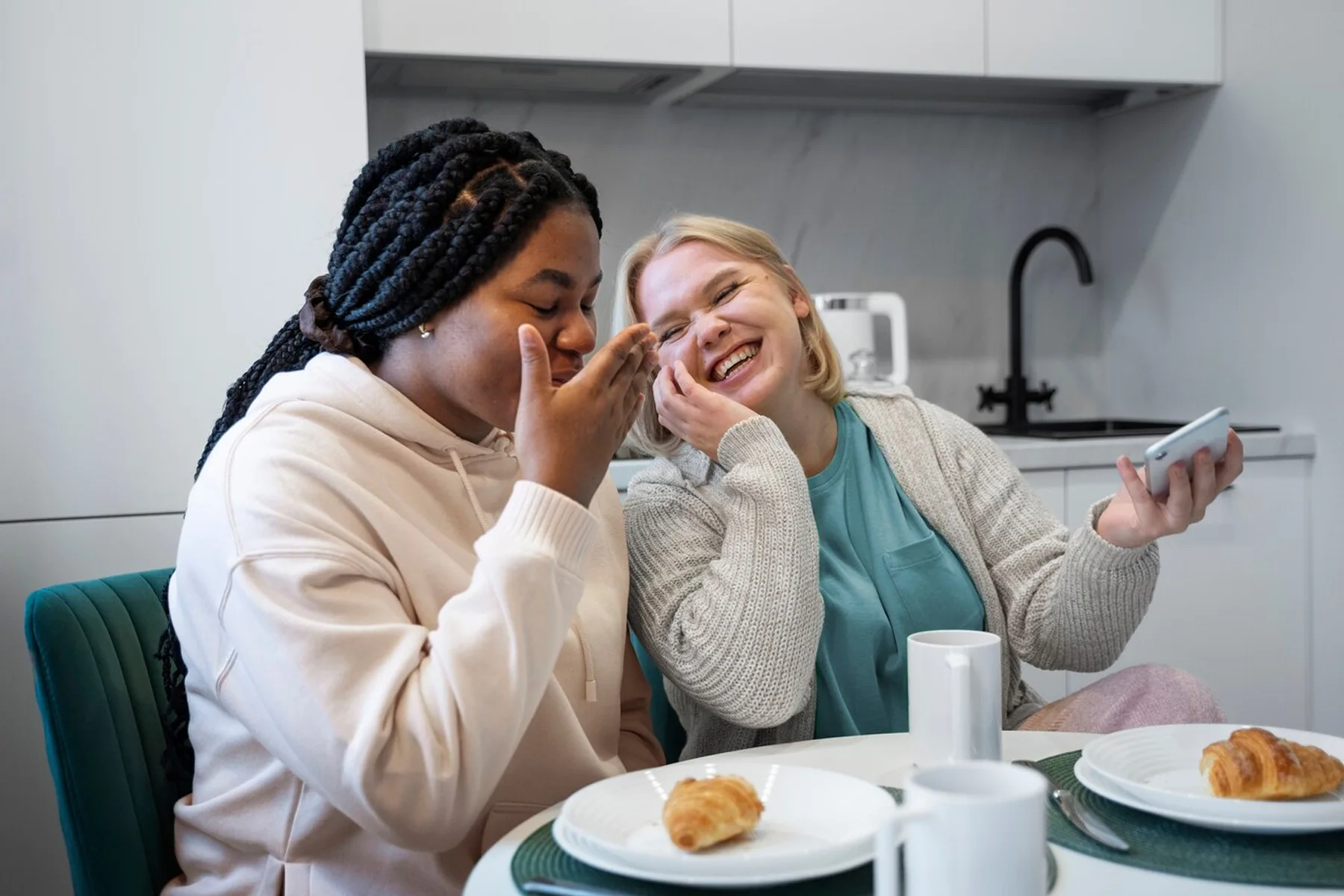Independence shapes human dignity and enhances life’s quality. Many Australians with disabilities need appropriate support and living arrangements that align with their personal needs and goals to achieve their independence.
The National Disability Insurance Scheme (NDIS) has reshaped the scene of independent living through supported independent living programs and individualised living options. These programs give participants more control over their living arrangements, ranging from shared accommodations to private housing solutions.
Let’s look at five ways NDIS reshapes independent living options for participants. The discussion covers different housing arrangements and working with support coordinators that help you make smart choices about your living situation.
Better Outcomes
Independent Living Support & Options
For any queries reach our team at RISU CARE PTY LTD. RISU Care is currently registered under subsection 73E(4) of the National Disability Insurance Scheme Act 2013 (NDIS Act).
Understanding NDIS Independent Living Support
Let’s take a closer look at how NDIS supports independent living through living arrangements and funding options. Finding the right living solution plays a vital role in your independence and quality of life.
Types of living arrangements available
NDIS provides several flexible arrangements for independent living options. Supported Independent Living (SIL) gives you paid personal support with daily tasks like personal care and meal preparation. Individualised Living Options (ILO) creates a customised support package that fits your chosen living situation if you need less intensive support.
Home modification options can revolutionise your existing residence to better meet your needs. These modifications range from simple adjustments to major structural changes that keep your home comfortable and available.
Eligibility criteria and assessment process
NDIS independent living support assessment gives you a complete and customised evaluation. Our team at RISU Care can help you assess your specific needs in several key areas:
- Personal care requirements
- Daily living activities
- Health and medical support needs
- Community access capabilities
- Skill development opportunities
Funding categories and support levels
Your NDIS plan might include three main types of support budgets:
- Core Supports Budget: Covers everyday activities and current disability-related needs
- Capacity Building Supports Budget: Focuses on building your independence and skills
- Capital Supports Budget: Funds assistive technology, equipment, and home modifications
Each support category offers flexibility while providing specific assistance for your living arrangement. Our team can guide you to set appropriate funding levels based on your individual needs.
1. Navigating Housing Choices Under NDIS
We’re committed to finding the perfect match for your lifestyle and support needs as you learn about housing options through NDIS. Your choices of living arrangements will line up with your independence goals.
Supported independent living options
Supported Independent Living (SIL) provides complete assistance with daily tasks to help you live as independently as possible. This option works great for participants who need important support throughout the day, including overnight care. We can arrange SIL if you live independently or share your space with other NDIS participants. This will give a customized care plan that matches your specific needs.
Shared accommodation benefits
Shared living arrangements offer unique advantages for many participants. You can share a home with two to five other residents. This creates opportunities for social connection while you retain control of your independence. Some key benefits include:
- 24/7 support availability for daily activities
- Built-in social connections with housemates
- Shared resources and support services
- Budget-friendly living arrangements
Private housing arrangements
Several options support your choice if you prefer more independent settings. Through our Individualised Living Options (ILO), you can discover different ways to live. This includes sharing your home with a chosen housemate or living with a host family. We can also help modify your existing home to better suit your needs. This ensures you can perform daily tasks safely and comfortably.
We provide access to Specialist Disability Accommodation (SDA) for participants with extreme functional impairment or very high needs. This specialised housing option makes accessing supports easier. You can arrange it either as a shared home or, in some cases, as an individual living space.
Note that we’re here to help you discover these options. Your choice of housing should reflect your priorities, support requirements, and lifestyle goals. We’ll work together to find the right balance between independence and support. This ensures your living arrangement boosts your quality of life.
2. Maximising Support Coordinator Services
Support coordination services are a vital part of reaching your independent living goals. The NDIS system can be complex. We’re here to help you get the most out of these services.
Role of support coordinators in housing
Our support coordinators help you understand and use your NDIS plan better. They provide three different levels of help:
- Support Connection: Links you to community and funded supports
- Support Coordination: Builds your skills to understand and use your plan
- Specialist Support Coordination: Gives advanced support for complex situations
Let’s figure out together which level matches your needs. This ensures you get the right support to reach your housing goals.
Working with service providers
Our support team can assist with clear service agreements that define roles, responsibilities, and how we communicate. Our support coordinator will help you:
- Work with the right support provider that suits your need
- Create service arrangements that work
- Solve the problems you are facing day-to-day basis
- Adjust services based on your needs
RISU Care believes in providing you the control towards your support arrangements. You can choose as how you want to talk with your coordinator – meet in person, call on the phone, or chat through video.
Building sustainable support networks
A strong support network is significant to succeed in independent living. We combine both formal and informal supports for lasting results. Team at RISU Care and support professionals provide formal support. Family, friends, and community members offer informal support.
Your support coordinator strengthens these networks by focusing on:
- Help during tough times and emotional support
- Assistance with daily tasks
- Getting around
- Managing service providers
Informal supports matter to your wellbeing. We work hard to build these valuable connections while managing your formal services.
3. Achieving Successful Living Outcomes
Life skills form the foundation of independence, and we’re here to help you build these significant abilities. Our team knows that building life skills is a personal experience. Each person needs patience, dedication, and the right support system.
4. Developing independent living skills
We help you strengthen the skills that boost your independence and control over daily life. Our approach has:
- Personal hygiene and self-care routines
- Health management and nutrition planning
- Household tasks and budget management
- Communication and social interaction skills
- Travel training and community navigation
These skills go beyond practical capabilities. They build confidence and self-esteem that comes with greater independence.
5. Managing daily routines
Consistent daily routines create the foundation for successful independent living. Our support team can assist you to create well-laid-out schedules that fit your lifestyle while staying flexible. Good routine management guides you toward greater autonomy in everyday tasks like meal preparation, household maintenance, and personal care.
Time Management Support You’ll learn effective strategies to manage your schedule, plan weekly meals, organise household chores, and coordinate appointments. This organised approach builds your confidence to handle daily responsibilities on your own.
Measuring progress and achievements
Progress tracking keeps you motivated and shows where you can grow. We use a detailed monitoring system that has:
Regular plan reassessments every 12 months to assess your progress and set new goals. We document your achievements together, celebrate every milestone in your experience toward independence, no matter how small.
Our progress reports highlight:
- Support effectiveness in reaching your goals
- Improvements in functional abilities
- New skills developed
- Challenges overcome
- Additional support needs identified
Progress measurement works as a tool for motivation and continued growth. Your progress tracking helps us adjust support levels and strategies. This ensures you move forward steadily on your path to independence.
Conclusion
NDIS support has transformed how Australians with disabilities live independently. It gives them choices that align with their needs and dreams. Our detailed support systems – from SIL to ILO arrangements – help participants take control of their living situations and build life skills.
People succeed in independent living when they find the right housing and combine it with proper support coordination and skill development. We’ve seen that participants get better results when they involve their support coordinators and build reliable support networks.
Your experience toward independence is unique to you. You might prefer shared accommodation or private housing arrangements. We’ll help you develop your daily living skills and track your progress. Each small win adds up to the most important changes in your life. NDIS support helps you create a living arrangement that works best for you.
FAQs
What are the independent living options available under NDIS?
The NDIS provides Individualised Living Options (ILO), which tailor support based on the individual’s preferences, strengths, and support requirements, as well as informal and community supports, to facilitate independent living at home.
What does NDIS supported independent living entail?
Supported independent living under NDIS refers to assistance provided to individuals in their homes, helping them manage daily tasks such as personal care and meal preparation. This support aims to enhance their ability to live independently and develop necessary skills.
What does NDIS mean by improved daily living skills?
Improved daily living skills under NDIS encompass services like assessments, training, or therapy, which may include early childhood supports. These are designed to help maintain, develop, or increase skills for greater independence and community involvement. These services can be provided either individually or in group settings.
Can you provide examples of circumstances that might lead to changes in NDIS support?
Changes in NDIS support can occur due to various reasons such as a shift from part-time to full-time employment, alterations in financial management (like a new person or organisation taking over financial responsibilities or bankruptcy), or changes in disability support needs.





 RISU Care acknowledges Aboriginal and Torres Strait Islander people as the Traditional Custodians of the land and acknowledges and pays respect to their elders, past and present.
RISU Care acknowledges Aboriginal and Torres Strait Islander people as the Traditional Custodians of the land and acknowledges and pays respect to their elders, past and present.